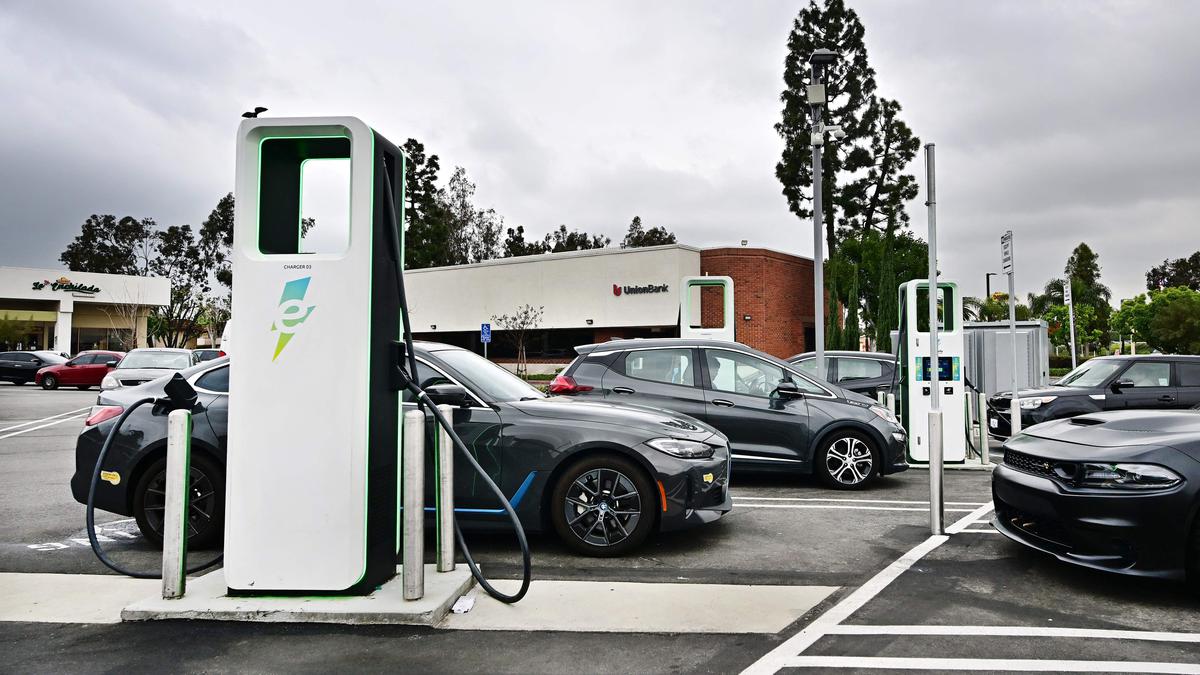
Explainer | How U.S. President Joe Biden is pushing a switch to electric vehicles in the U.S. Premium
The Hindu
The U.S. White House on Monday announced new commitments in the electric vehicles (EV) sector, in support of the country’s transition to cleaner energy
The story so far: The U.S. White House on Monday announced new commitments in support of the country’s transition to cleaner energy. President Joe Biden has actively pushed the use of electric vehicles (EVs) in the country and aims to have 50% of all new vehicle sales be electric by 2030.
Earlier in April 2023, the Biden administration proposed new, tougher vehicle pollution standards in a bid to promote the use of EVs in the U.S.
The new private and public sector commitments announced by the White House are part of President Biden’s Investing in America initiative. They are aimed at accelerating the growth of the EV industry by increasing consumer demand, lowering costs, and promoting inclusion. The four-pronged approach includes EV fleet expansion; community charging (commercial and multifamily); consumer education and support; and providing tools and resources.
EV fleet expansion: This includes coordination with popular ride-sharing companies as well as EV component producers. For example, Uber has committed to reaching 400 million EV miles driven on its platform in the U.S. by the end of 2023. Xcel Energy and Colorado Car Share have committed to launch an electric car-sharing programme for underserved and high-emissions communities in Colorado by the end of 2023. On the other hand, Redwood Materials is committed to scaling the production of critical battery components in the U.S., with the goal of powering five million EVs by 2030.
Community charging (commercial and multifamily): This covers commitments by companies to add EV charging stations to make the facility more accessible to the public. For example, Span.IO, Inc. has committed to triple the number of EV home charger installs by 2024; and Blink Charging has committed to invest $49 million to increase its manufacturing capacity in Bowie, Maryland from 10,000 to 40,000 chargers per year by 2024.
Consumer education and support: This includes collaboration with non-profit organisations, events, etc. to educate consumers about the benefits of EVs over conventional fuel-powered automobiles. For example, Avanza EV has committed to deploy chargers and bilingual EV education in at least 1,500 low-income majority Latino multifamily housing communities and engage at least 400,000 families by 2028. Climate Power has committed to educate over a million people about EVs through its influencer network by June 2024.
Tools and resources: Both private and public sector companies aim to use online training, savings prediction calculators, web portals, and other tools and resources to encourage Americans to switch to EVs. Exelon has committed to offering a comprehensive fleet electrification assessment service to help customers and businesses navigate vehicle electrification, create fleet electrification plans, and estimate total costs of ownership savings. National Automobile Dealers Association and Centre for Sustainable Energy have committed to launch online dealer training in 2023 to help them accelerate EV sales as well as mass-market EV adoption.













